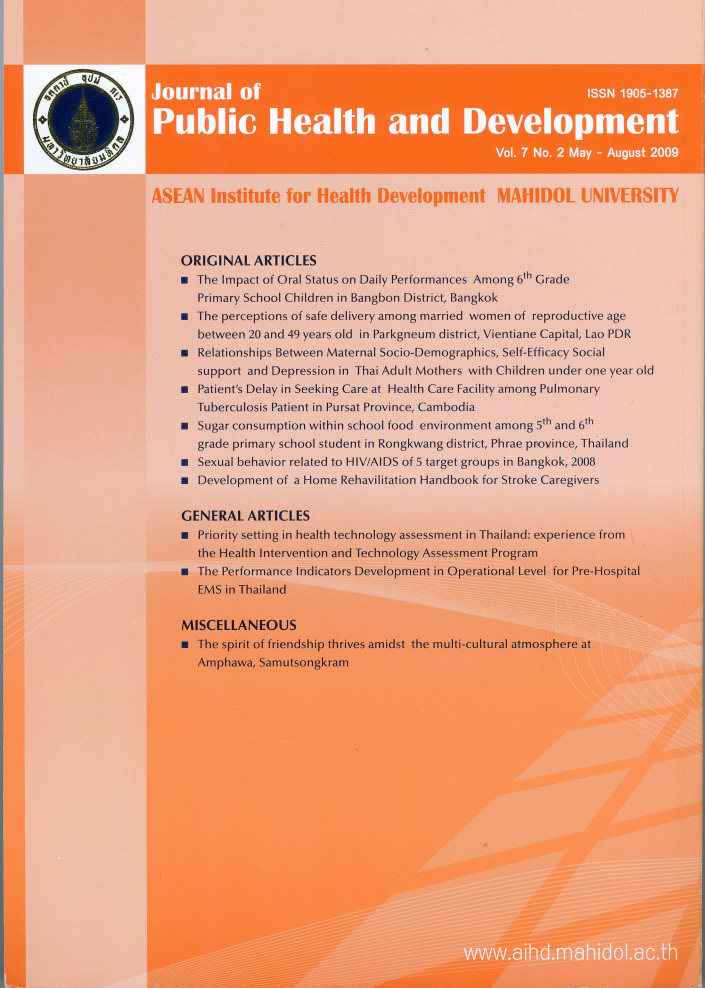Relationships between maternal sociodemographics, self-efficacy Social support and depression in thai adult mothers with children under one year old
Main Article Content
Abstract
The prevalence of maternal depression has become an important problem worldwide including Thailand. The purpose of this cross sectional study was to investigate the association of maternal self-efficacy and social support with maternal depression. The sample comprised 285 mothers with children aged one year or less and who attended the well-baby clinic in the pediatric out patient department at Samutsakhon Provincial Hospital. Data was collected using self-administrated questionnaires and the self-report technique. Pearson’s Correlation Coefficient, Chi-square test and multiple regression analysis using Stepwise procedure were used for data analysis.
Results revealed that the factors that were significantly related to maternal depression, were education level (r = .123, p =.038), sufficient family income ( =9.877, p=.007), maternal self-efficacy (r = -.135, p =.028), and social support (r = -.171, p =.004). After applying stepwise multiple regression analysis by controlling education level and sufficient family income, social support was found to be a good predictor (R2 = 9.5, p= .046) of depression, while self-efficacy (R2 = 9.5, p= .051) was not.
This study has shown that self-efficacy and social support are inversely related to maternal depression. It emphasizes the need for further study identifies and explains the role of maternal self-efficacy as a mediator in reducing maternal depression.


